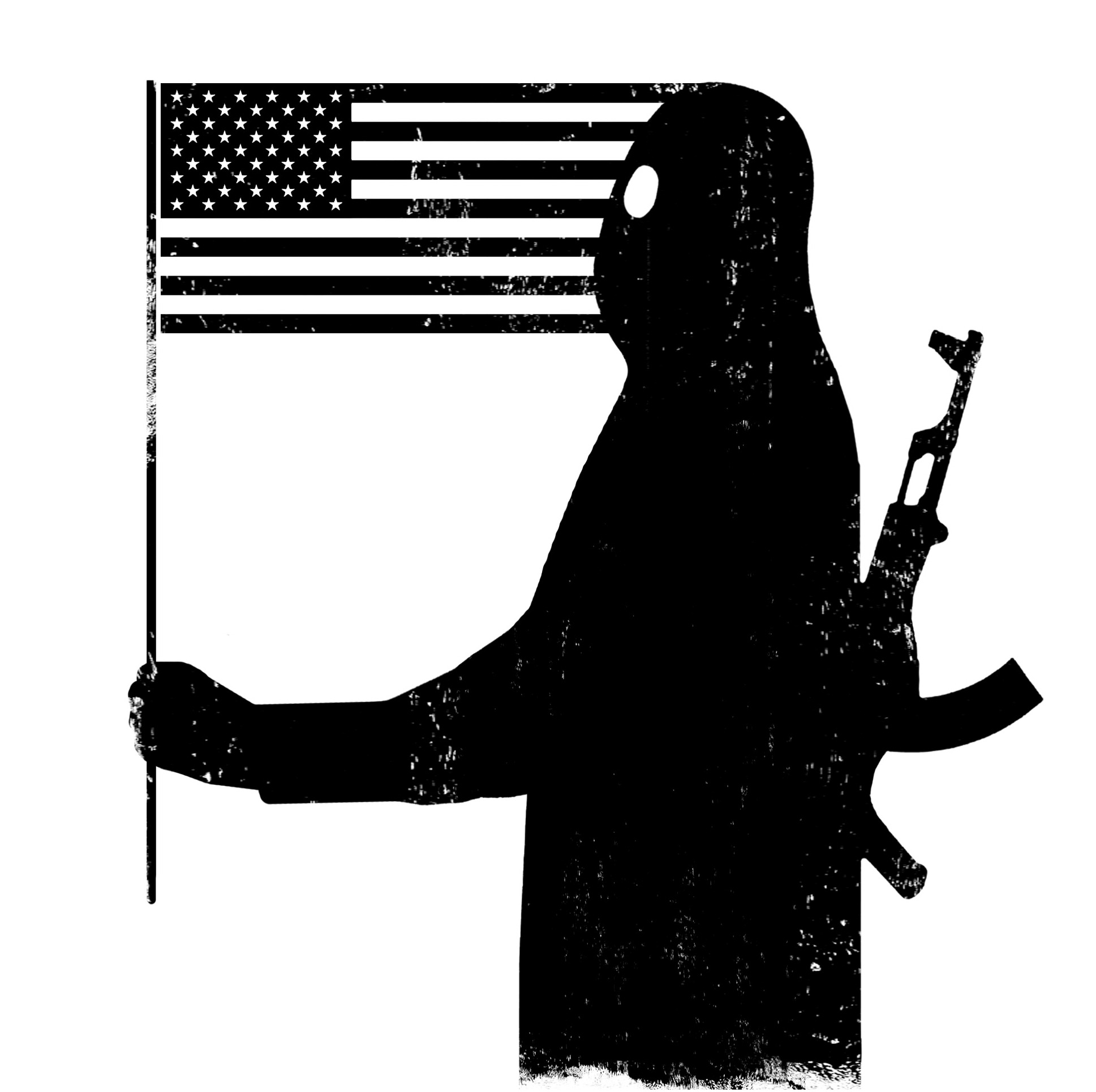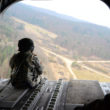In June 2014, the organization known variously as “ISIS” (the Islamic State in Iraq and Syria), “ISIL” (… in Iraq and Levant), simply “the Islamic State,” or—from the Arabic—“Da’esh” burst dramatically onto the geopolitical scene by capturing Iraq’s second-largest city, Mosul, from the country’s large, U.S.-equipped national army. ISIS’s capture of Mosul, coming after it had surged into a string of other significant cities in Iraq (and before that, Syria) signaled the emergence and consolidation of a militarily capable, cross-border, Sunni-extremist formation that is in some senses more politically radical even than Al-Qa’ida. It signaled, too, the definitive failure of an American policy in Iraq that from 2003 through 2011 sought to use U.S. military power to establish a sustainable, firmly pro-American order in Iraq.
In Washington, much of the response to ISIS’s capture of Mosul has focused on two aspects. The first was the extreme weakness of the political order inside Iraq that it revealed—especially given that large segments of Iraq’s armed forces, including high-ranking officers, chose not to confront ISIS in Mosul (or anywhere else except the immediate outskirts of Baghdad), but simply melted away, discarding their uniforms as they fled and leaving their massive arsenals for the ISIS attackers to take over at will. Washington insiders vied with each other to blame the government of former Prime Minister Nouri al-Maliki for Iraq’s political failings while they paid almost no heed to the role Washington itself (including both the executive branch and significant members of the legislative branch, such as former Senator Joe Biden) had played in the wake of the 2003 invasion in creating the overtly sectarian system in which the rival sectarianisms of Maliki (a Shiite) and the Sunnis of ISIS were incubated and from which they came to flourish.
Washington insiders likewise paid little heed to the deep culture of political and financial corruption that the U.S. government incubated in Iraq during the eight-year military occupation of the country. This corruption, embedded deep inside the country’s armed forces, contributed hugely to the Iraqi Army’s unreadiness to confront ISIS’s small, nimble and well-organized forces on the battlefield. Another quite fundamental aspect of the Iraqi Army’s weakness (and ISIS’s strength) in 2014 was that, immediately after the U.S. forces entered Baghdad in 2003, they dismantled the entire Iraqi military rather than take up offers many Iraqi generals and other officers made to “come over” and work with the occupation authorities to rebuild the country. Large numbers of the military men summarily dismissed in 2003 reportedly ended up taking over to ISIS the considerable experience they had amassed in organizing military operations while the new, post-2003 forces the U.S. built up remained riven by corruption and sectarian squabbling.
Journalist Patrick Cockburn argues in his new book The Jihadis Return that Washington’s successive decisions to invade Afghanistan and Iraq were completely misdirected since two other states—Pakistan and Saudi Arabia—had played a much greater role in nurturing and enabling the bombers of 9/11.
A second aspect of the post-Mosul discussion inside Washington about Iraq was more overtly “political”: Numerous pro-Republican commentators charged that if Obama had not withdrawn the final U.S. forces from Iraq in 2011, then somehow—they never explained exactly how—the debacle at Mosul could have been avoided. This accusation was based on a stark misremembering of what happened. It was indeed George W. Bush who, back in November 2008, had signed the Withdrawal Agreement that stipulated the total withdrawal of all U.S. forces by the end of 2011.
Pakistan and Saudi Arabia Are the Problem
Patrick Cockburn is not a Washington insider, and thus has not had to spend much time engaged in these insider-y debates. He is an on-the-ground reporter; a Middle East correspondent since 1979, first for The Financial Times and, currently, The Independent. Over the past few years a lot of the ground he has been on has been the terrain in which ISIS has been active. The Jihadis Return is an extremely timely (though frustratingly short) collection of his analyses of the ISIS phenomenon based on reporting he has conducted inside Iraq and Syria and also informed by reporting from other theaters of the U.S. “war on terror,” including Libya and Afghanistan.
At the end of his introductory chapter, he tersely judges that:
[T]he “war on terror,” the waging of which has shaped the political landscape for so much of the world since 2001, has demonstrably failed. Until the fall of Mosul, nobody paid much attention.
The book contains useful chapters on the activities of ISIS in Iraq and Syria, a chapter on the role of Saudi Arabia, and a chapter that is a hard-hitting critique of the way the Western mainstream media has covered developments in the war on terror. But the media is not the main target of Cockburn’s ire, which, throughout the book, is directed much more at policies pursued by Washington and its allies that, he very convincingly argues, were what allowed ISIS to emerge and grow. Washington’s successive decisions to invade Afghanistan and Iraq in 2001 and 2003 were, he argues, completely misdirected since two other states—Pakistan and Saudi Arabia—had played a much greater role than Iraq or even Afghanistan in nurturing and enabling the bombers of 9/11. He writes:
The ‘war on terror’ has failed because it did not target the jihadist movement as a whole and, above all, was not aimed at Saudi Arabia and Pakistan, the two countries that fostered jihadism as a creed and a movement.
His criticisms of Saudi Arabia and Pakistan are valid. Saudi Arabia, as a state whose eponymous ruling family has been allied with the followers of Muhammad ibn Abdul-Wahhab (Wahhabis) for more than 200 years, bears considerable responsibility for the spread of the austerely vengeful and sectarian Wahhabi creed throughout the whole of Sunni Islam. And Pakistan, as a state that shares with Israel the distinction of having been founded on an explicitly theocratic basis (and of having developed a nuclear arsenal to defend their theocracy), has provided a safe haven for Wahhabis and other Sunni-sectarian jihadis for many decades.
I wish Cockburn had gone a lot further in laying out precisely how the U.S. could have “held these two countries accountable.” I wish, too, that he had assigned the same degree of blame for the rise of ISIS to the present Turkish government. For while Wahhabi-inspired jihadism is a phenomenon found in many Sunni communities, the particular form it has taken in Mesopotamia would not have been possible had Turkey not provided a secure rear-base and a well-greased passageway for foreign jihadi fighters from all around the world—including many thousands from Saudi Arabia and other Gulf states—who have since August 2011 been flooding, along with their armaments, into northern Syria.
Turkey has also, it is true, provided these services for members of the secular branch of the anti-Assad movement in Syria. But as we have seen repeatedly over the past three years, the secular wing of the anti-Assad movement has always been strongly outnumbered by the jihadis. On far too many occasions, weapons that nominally pro-Western governments have sent to the secular fighting groups have ended up in the hands of the jihadis; and though Washington has tried to designate the non-ISIS branch of the jihadis, Jabhat al-Nusra (JAN) as “less bad” than ISIS, and thus potentially eligible for American support, in truth there is little to choose between them. There have been numerous accounts—as Cockburn notes—of the two coordinating on the battlefield.
Nearly all of the growth of the armed jihadi movement in Syria can be attributed to the decision Turkey’s then-Prime Minister (now President) Recep Tayyip Erdogan took in August 2011 to ditch a long-held policy of entente with Assad’s Syria in favor of joining (or leading) a determined effort to overthrow the Assad government. Turkey’s government and military are strong and well able to exert near-total control over the country’s lengthy border with Syria. For whatever reason—and the emergence of what some Turkish analysts have identified as a growing pro-Qa’ida movement inside Turkish society could be one of them—Erdogan allowed large-scale passage of foreign jihadis and their weapons into northern Syria. Indeed, there have been numerous reports of Turkey’s powerful military intelligence coordinating with the jihadis in Syria on logistical matters.
Cockburn does mention the contribution that Turkey’s “open border” policy has made to the growth of ISIS in Syria. But I think he is too easy on the Turkish government. Regarding the crucial, now completely unified jihadist battlefield in Syria-and-Iraq, Turkey’s role has been key. (To be fair, in some of the articles he has published in The Independent since the publication of the book, he has paid much greater attention to Turkey’s role.)
Not All “Arab Springs” Are the Same
I also think Cockburn shows too little discernment in his treatment of the Arab uprisings of 2011. He writes that, “The revolutions and popular uprisings of 2011 were as genuine as any in history.” I beg to differ.
The uprisings that year in Tunisia and Egypt were authentic, indigenously organized popular movements; and in both cases the revolutionaries adhered with great discipline, and in Egypt at no small cost, to a well-thought-out strategy of nonviolent reproach of people (including the security forces) still loyal to the old regime.
By contrast, the uprising that started a little later in Syria bore many of the hallmarks of an externally supported effort—not surprisingly, since Syria had been the target of a well-funded, covert U.S. campaign of regime change since at least the mid-2000s. Moreover, Syria’s opposition showed none of the organic resiliency and discipline of the anti-dictatorship movements in Tunisia or Egypt. From April 2011 on, many portions of the Syrian opposition started using weapons, a strategy that, given the overwhelming preponderance of power in the regime’s hands (there, as in Egypt or Tunisia), was almost certain to end badly. The decision by the Syrian opposition to take up arms provided an opportunity—especially after Turkey opened its borders to jihadis four months later—for jihadis from around the world to flood the country with weapons.
Still, there are many aspects of the last two years of the developments inside Syria that Cockburn—one of the few Western correspondents who has covered both sides in the war there—has gotten right. For example, he is quite correct to note that:
By insisting that Assad should go as a precondition of peace, while knowing this is not going to happen, his enemies are in practice ensuring that the war will go on. Assad may not want a peaceful compromise, but then neither is he being offered one.
The chapter he wrote about the role the Western media (and its often clever manipulation by both secular and jihadist movements in the Arab world) has played in misrepresenting the nature of events to the Western public is a particularly strong one. Altogether, there is a lot of valuable information and analysis packed into this slim volume.
I hope in a follow-on book, Cockburn can delve in greater detail into aspects of the subject that received insufficient coverage in this one—aspects like the role of Turkey, or the extremely damaging role that the highly ideological (neoconservative, anti-Arab, anti-effective governance) policies pursued by Washington against Iraq and Syria played in sowing the seeds of the ISIS whirlwind.
ISIS is now well-established as a force in Middle Eastern politics—massively lethal, actively inhumane, and deeply disruptive of the entire system of states that has existed there for the past 90 years. It casts its shadow far beyond Iraq and Syria. No one in Washington or anywhere else yet has any convincing strategy to defeat it. We all need to work a lot harder to understand the roots and origins of this dangerous new force. Cockburn’s book makes an excellent early contribution to such understanding.
Helena Cobban is a veteran researcher and writer on Middle Eastern and world affairs. She is the founder and CEO of Just World Books.







When there are citizens of the western nations that leave to go join ISIS it raises a question as to why. One aspect that seems totally overlooked is psychology. Innately, humans, based on evolution, need the security of “certainty” in their lives. That is what all religions appeal to. Some people more than others have a stronger need for certainty vs. the uncertainty of science. Together with other social conditions in their lives this factor can take control if a dogma seems to satisfy that need. I have seen the same function among Christians, which I started out as, and of course it is much more exploited in authoritarian cultures/societies than in our sectarian one. Our national security propaganda needs to include/recognize this factor in its efforts to discourage our own jihadists.